
Voldemort Character Analysis: Unveiling the Dark Lord's Motivations, Traits, and Impact on the Wizarding World
A Voldemort character analysis unveils the complexities behind one of the most feared and iconic villains in the Harry Potter universe. Known for his ruthless ambition, obsession with immortality, and complete disregard for human life, Voldemort’s journey from a troubled child to the Dark Lord is both chilling and fascinating. This article delves into the key psychological traits, motivations, and decisions that shaped his rise to power, exploring the factors that made him the embodiment of evil.
By understanding Voldemort’s character, readers will gain a deeper appreciation of his impact on the wizarding world, while uncovering important lessons about the dangers of unchecked ambition and fear. Join us as we explore the Dark Lord’s story and discover what makes Voldemort such a compelling and tragic figure.
Table of Contents
ToggleVoldemort’s Early Life and Formative Experiences
Voldemort’s journey to becoming the Dark Lord started long before he embraced his sinister identity. His early life as Tom Riddle is crucial to understanding the motivations that shaped his character. Let’s take a closer look at how his childhood and formative experiences influenced his path toward darkness.
1. Born into Tragedy: The Orphaned Boy
 Tom Riddle, later known as Voldemort, was born to a Muggle father, Tom Riddle Sr., and a witch, Merope Gaunt, from the pure-blood Gaunt family. His mother died shortly after giving birth, leaving Tom to grow up in an orphanage. This early loss of his mother played a major role in shaping his deep fear of abandonment and insecurity.
Tom Riddle, later known as Voldemort, was born to a Muggle father, Tom Riddle Sr., and a witch, Merope Gaunt, from the pure-blood Gaunt family. His mother died shortly after giving birth, leaving Tom to grow up in an orphanage. This early loss of his mother played a major role in shaping his deep fear of abandonment and insecurity.
Without a family to nurture him, Tom’s loneliness and lack of love made him vulnerable to anger and a desire for power. He quickly realized he had magical abilities, which set him apart from the other children in the orphanage and gave him a sense of superiority.
2. Discovering His Magical Heritage
 At the age of eleven, Tom was accepted into Hogwarts School of Witchcraft and Wizardry, where he discovered more about his magical heritage. It was here that he adopted the name “Lord Voldemort,” a self-created anagram of his birth name, “Tom Marvolo Riddle.” This act was a symbol of his rejection of his Muggle roots and his desire to sever ties with his past.
At the age of eleven, Tom was accepted into Hogwarts School of Witchcraft and Wizardry, where he discovered more about his magical heritage. It was here that he adopted the name “Lord Voldemort,” a self-created anagram of his birth name, “Tom Marvolo Riddle.” This act was a symbol of his rejection of his Muggle roots and his desire to sever ties with his past.
During his years at Hogwarts, Tom was both charismatic and cunning, traits that would define his later leadership as Voldemort. He excelled in dark magic, further cementing his belief that power was the key to overcoming any weakness, including his painful childhood.
3. The Dark Influence of His Family’s Legacy
Voldemort’s obsession with his pure-blood ancestry began during his time at Hogwarts. His maternal family, the Gaunts, were descendants of Salazar Slytherin, and this bloodline gave him a sense of entitlement. However, his disdain for his Muggle father, whom he believed abandoned him, fueled his hatred for non-magical people. This growing resentment towards Muggles and Muggle-borns would later form the foundation of his belief in pure-blood supremacy.
His fixation on blood purity can be traced back to his early interactions with his family’s dark legacy, which was steeped in jealousy, resentment, and bitterness.
4. Key Turning Point: His First Killing
Tom Riddle’s first murder marked the beginning of his descent into darkness. He killed his father, Tom Riddle Sr., and his grandparents to erase his Muggle heritage. This act of violence wasn’t just about ridding himself of his family—it was about asserting his dominance over life and death. This event set the stage for his obsession with immortality, which would drive him to create horcruxes later in life.
Actionable Insight: The Importance of Early Influences
Voldemort’s early life is a stark reminder that formative experiences have a profound impact on one’s path in life. His lack of love, loss of family, and sense of isolation made him vulnerable to bitterness and a desire for control. Understanding this can help us recognize the importance of emotional support and healthy relationships in shaping one’s future. For those facing hardship, like Tom Riddle did, seeking help, forming positive connections, and addressing emotional wounds early on can help avoid a path of self-destructive behavior.
Understanding Voldemort’s Motivations
Voldemort’s actions throughout the Harry Potter series are driven by deep-rooted fears, desires, and beliefs. Understanding what motivated him is key to grasping his complex character. In this section, we’ll break down the major factors that shaped his motivations and explain how they led him down a dark path.
1. Fear of Death: The Root of Voldemort’s Obsession
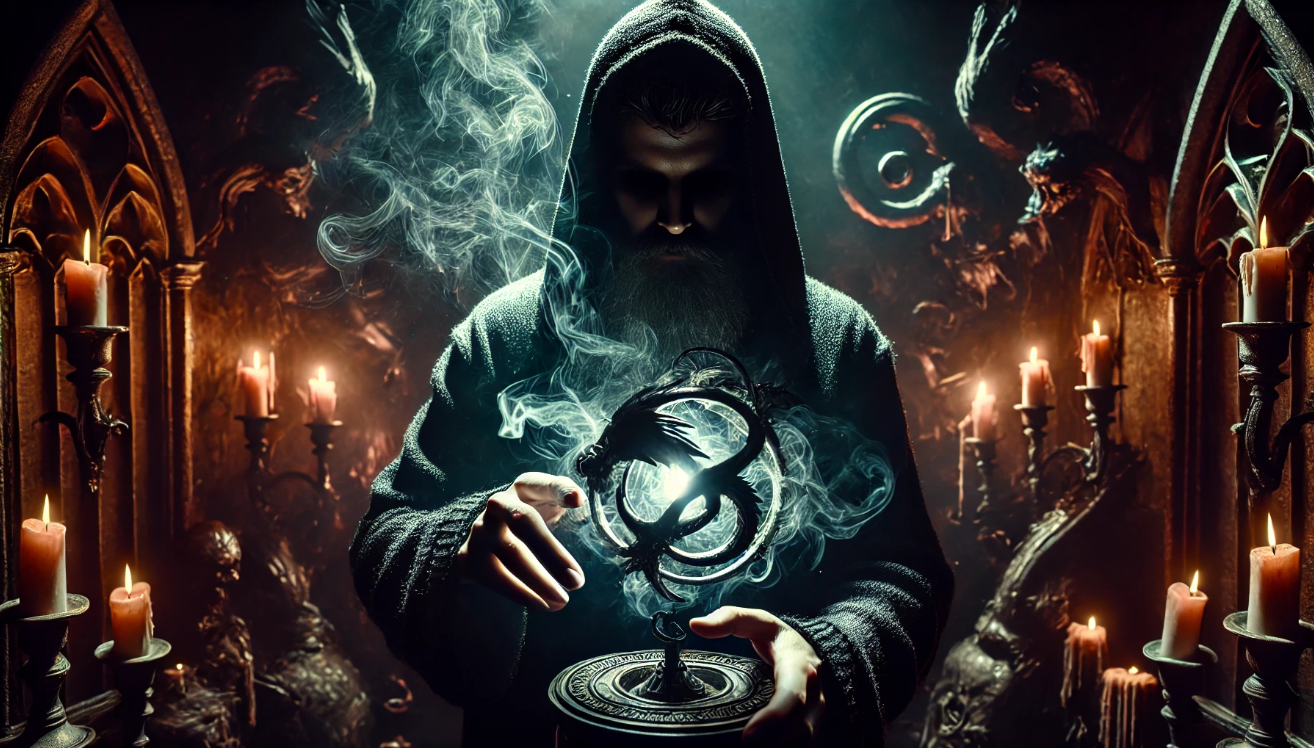 One of the most significant driving forces behind Voldemort’s actions was his overwhelming fear of death. This fear began early in his life, after experiencing the loss of his mother. As he grew older, this fear transformed into an obsessive desire for immortality.
One of the most significant driving forces behind Voldemort’s actions was his overwhelming fear of death. This fear began early in his life, after experiencing the loss of his mother. As he grew older, this fear transformed into an obsessive desire for immortality.
Voldemort’s quest for eternal life led him to create horcruxes—dark magic objects designed to store pieces of his soul. The more horcruxes he made, the harder it became for him to connect with his humanity. His obsession with immortality was not only about avoiding death but also about controlling it, an attempt to conquer something that is inevitable for everyone.
Actionable Insight: Voldemort’s fear of death teaches us a critical lesson about how obsession with control—especially over uncontrollable things like death—can lead to destruction. Learning to embrace the inevitable and focusing on living meaningfully is far healthier than living in fear.
2. Power and Control: The Desire to Dominate
Voldemort’s insatiable thirst for power was another key motivator. Early on, he realized that in the wizarding world, power was everything. By mastering dark magic and rising to the top, Voldemort believed he could control not just his own fate, but the fate of others.
This desire for power was deeply connected to his need for respect and superiority. Voldemort saw himself as superior to all others, especially Muggles and Muggle-borns, whom he considered inferior. His need for control over the wizarding world was not just about ruling—it was about asserting his perceived dominance over everyone and everything.
Actionable Insight: The pursuit of power, if not tempered by wisdom and empathy, can lead to a loss of humanity. Understanding the difference between healthy ambition and destructive control can help avoid the pitfalls Voldemort faced.
3. Rejection of Love: The Fatal Weakness
Unlike most people, Voldemort rejected love as a weakness. Having grown up in an environment devoid of love, he came to view it as something that made people vulnerable and weak. This rejection led him to distance himself emotionally from others, leaving him with no genuine relationships or sense of loyalty.
Voldemort’s inability to understand love shaped much of his actions. He believed that power could be the ultimate substitute for love, and he saw affection as a mere distraction. This refusal to embrace human connections led him to manipulate and betray those closest to him, even his followers.
Actionable Insight: Voldemort’s refusal to embrace love highlights the importance of connection and emotional support in life. Love and loyalty create trust and strength—something Voldemort never understood, ultimately leading to his downfall.
4. Blood Purity and Superiority: His Hatred of Muggles
Voldemort’s belief in blood purity was another driving force. He was determined to create a new order where wizards of pure-blood descent ruled over Muggle-borns and Muggles. This belief was rooted in both his pride in his Slytherin lineage and his intense hatred of his Muggle father.
By elevating himself above others based on blood purity, Voldemort fueled much of the conflict in the wizarding world. His Death Eaters carried out his beliefs, spreading fear and hatred toward anyone who was not pure-blood, leading to a society divided by fear and prejudice.
Actionable Insight: Voldemort’s obsession with blood purity shows how prejudice and hate can divide and destroy communities. Fostering inclusivity, respect, and acceptance of all people, regardless of background, is essential to a more peaceful world.
5. Legacy and Control: His Desire to Be Remembered
Finally, Voldemort was motivated by a need for legacy and remembrance. His obsession with leaving an eternal mark on the world led him to seek dominance over not just the living but also the memory of his existence. He wanted to be feared and remembered, not for his kindness, but for his power and ruthlessness.
This desire for a legacy, however, blinded him to the fact that true legacy is built through meaningful relationships and positive impact, not through fear and control. His attempts to control others ultimately led to his isolation and eventual downfall.
Actionable Insight: Focusing on leaving a positive legacy through kindness, wisdom, and love is far more fulfilling than seeking fame through fear. Building lasting connections and contributing to others’ lives can create a meaningful and remembered legacy.
Key Traits of Voldemort’s Personality
Voldemort is a character defined by his complex personality traits. These traits are integral to understanding his actions and motivations throughout the Harry Potter series. In this section, we’ll explore the key characteristics that shaped Voldemort’s dark journey, providing valuable insights into how they influenced his rise to power and ultimate downfall.
1. Narcissism and Arrogance: The Belief in His Superiority
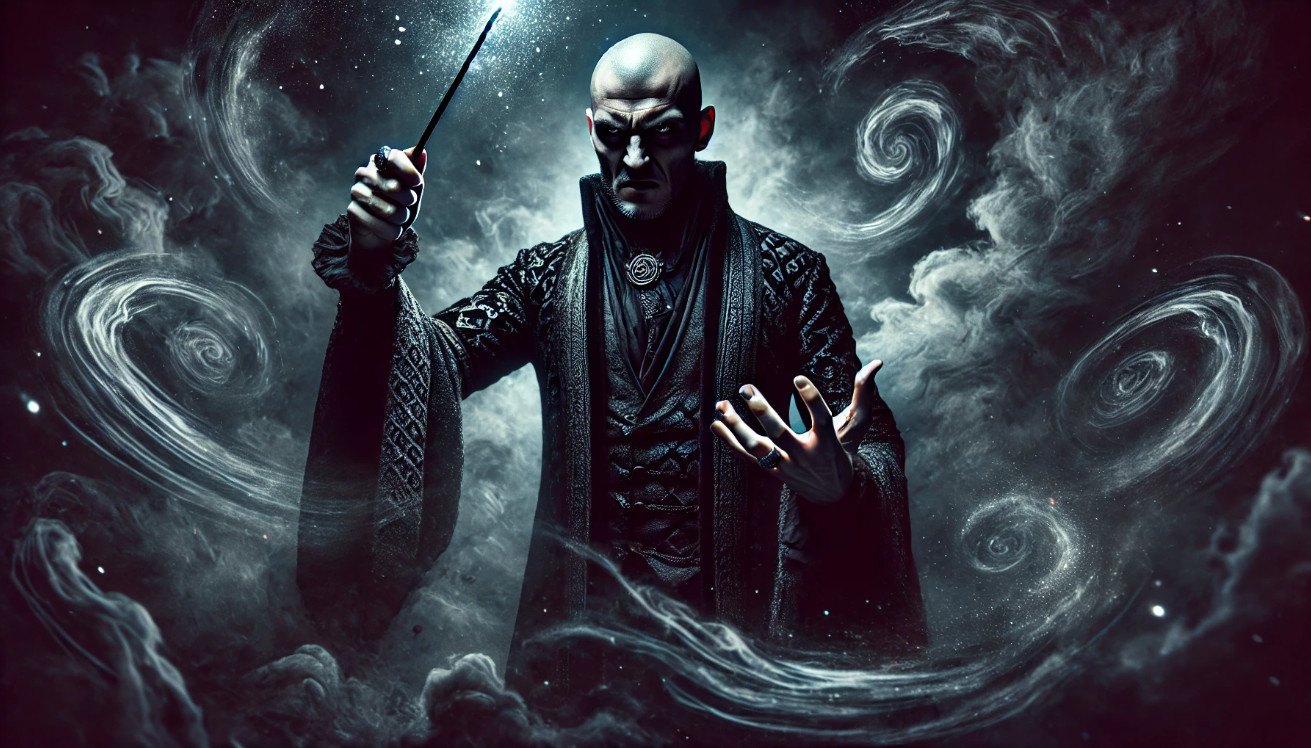 Voldemort’s overwhelming sense of superiority was one of his defining traits. He believed he was destined to rule the wizarding world because of his “pure” bloodline and superior magical abilities. This narcissism made him look down on anyone he considered inferior, including Muggles, Muggle-borns, and even some wizards.
Voldemort’s overwhelming sense of superiority was one of his defining traits. He believed he was destined to rule the wizarding world because of his “pure” bloodline and superior magical abilities. This narcissism made him look down on anyone he considered inferior, including Muggles, Muggle-borns, and even some wizards.
His arrogance made it difficult for him to trust others, leading him to manipulate and control his followers through fear rather than genuine loyalty. He often underestimated the strength and courage of those who opposed him, leading to critical mistakes.
Actionable Insight: Voldemort’s excessive narcissism shows the dangers of overestimating one’s abilities and underestimating others. A healthy level of self-awareness and respect for others’ strengths is essential for effective leadership.
2. Lack of Empathy: The Inability to Understand Others’ Emotions
Perhaps one of Voldemort’s most dangerous traits was his total lack of empathy. He was incapable of understanding or valuing the emotions of others, which allowed him to commit atrocities without remorse. His inability to love or form genuine emotional connections left him isolated and incapable of trusting others.
This lack of empathy made him highly manipulative, using fear as a tool to control others. He often surrounded himself with followers who were loyal to him out of fear rather than admiration or love.
Actionable Insight: Empathy is a key trait for building meaningful relationships. Voldemort’s failure to connect with others emotionally led to his ultimate isolation. Cultivating empathy and emotional intelligence can help build stronger, more trusting relationships in both personal and professional settings.
3. Ruthlessness: Willingness to Do Whatever It Takes
Voldemort’s ruthlessness was a major factor in his rise to power. He was willing to do anything to achieve his goals, including using dark magic, betraying allies, and killing anyone who stood in his way. His ruthlessness made him a fearsome opponent, but it also led to his downfall.
For example, Voldemort was willing to kill his own followers if they showed any sign of betrayal or weakness. This created an atmosphere of fear and distrust within his inner circle, ultimately weakening his position.
Actionable Insight: While determination is important, ruthlessness can damage relationships and create lasting consequences. A balanced approach to achieving goals—one that values collaboration, respect, and ethical behavior—can lead to more sustainable success.
4. Paranoia: Constant Fear of Betrayal
Voldemort’s paranoia about being betrayed was another key aspect of his personality. He trusted no one, constantly fearing that his followers might turn against him. This paranoia led him to take extreme measures to maintain control, including the use of the Unbreakable Vow to bind his followers’ loyalty and the constant surveillance of his Death Eaters.
Ironically, Voldemort’s distrust of others ultimately became his greatest weakness. His inability to trust even those closest to him made him vulnerable to betrayal, most notably by Severus Snape.
Actionable Insight: While vigilance is important in leadership, excessive paranoia can undermine trust and cooperation. Encouraging transparency and open communication can help build trust within teams and prevent unnecessary fear.
5. Charisma: The Ability to Influence and Manipulate
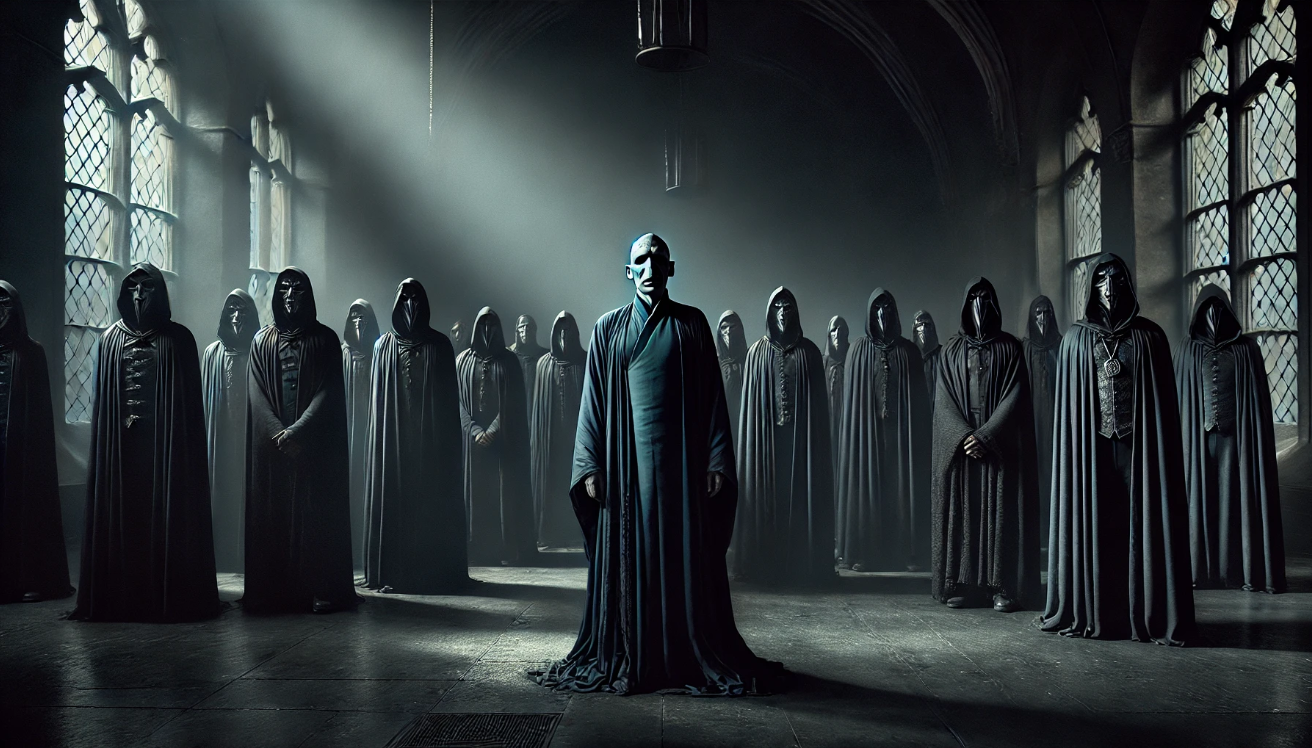 Despite his many flaws, Voldemort had a certain charm and charisma that allowed him to attract followers. His powerful speeches, combined with his mastery of dark magic, made him a compelling figure for those seeking power or direction. His ability to manipulate others into doing his bidding was one of the reasons he was able to build such a large and loyal following.
Despite his many flaws, Voldemort had a certain charm and charisma that allowed him to attract followers. His powerful speeches, combined with his mastery of dark magic, made him a compelling figure for those seeking power or direction. His ability to manipulate others into doing his bidding was one of the reasons he was able to build such a large and loyal following.
However, his charm was built on fear and intimidation, rather than genuine affection or admiration. As a result, his influence was shallow and ultimately crumbled when his followers realized the extent of his manipulation.
Actionable Insight: True leadership is not built on manipulation or fear but on integrity, trust, and mutual respect. Developing a genuine connection with others creates lasting influence that is based on loyalty and admiration.
Voldemort’s Impact on the Wizarding World
Voldemort, the Dark Lord, is arguably the most influential figure in the Harry Potter series. His rise to power not only shook the wizarding world to its core but also left lasting scars on its society, politics, and magical community. Understanding Voldemort’s impact can offer valuable insights into how fear and power dynamics shape both individual lives and larger societies. Let’s break down his most significant effects:
1. The Rise of Fear and Division 
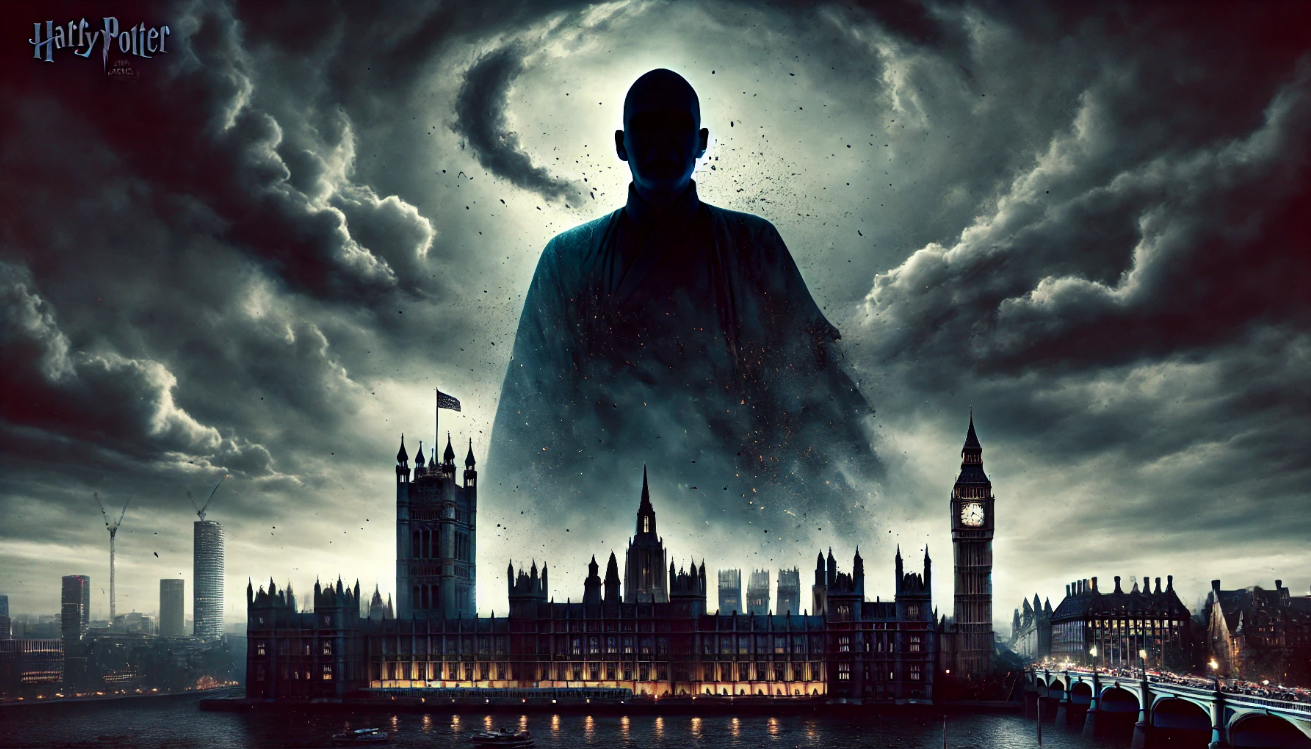 When Voldemort took power, fear swept across the wizarding world. His followers, the Death Eaters, used terror as their primary tool. The Ministry of Magic became paralyzed, unable to effectively oppose him, as many people lived in constant fear of death, torture, or betrayal. Voldemort divided the magical community, pitting Purebloods against Muggle-borns and leading to widespread discrimination.
When Voldemort took power, fear swept across the wizarding world. His followers, the Death Eaters, used terror as their primary tool. The Ministry of Magic became paralyzed, unable to effectively oppose him, as many people lived in constant fear of death, torture, or betrayal. Voldemort divided the magical community, pitting Purebloods against Muggle-borns and leading to widespread discrimination.
Actionable Insight: Fear, when used strategically, can divide and conquer, leading to a society where people feel isolated or powerless. In any community or organization, it’s essential to combat divisiveness by promoting unity and equality.
2. Political Instability and Corruption 
Voldemort’s reign also highlighted the vulnerability of political institutions. His ability to manipulate individuals in power, like Cornelius Fudge, the Minister of Magic, showed how easily corrupt leaders can manipulate the truth to protect their interests. The Ministry was ineffective in tackling the growing danger, and its focus on maintaining power rather than protecting citizens made it an unreliable institution during Voldemort’s rise.
Actionable Insight: Political instability and corruption often occur when leaders prioritize their own power over the well-being of their people. In any organization, transparency and accountability should be prioritized to ensure that power is used for the greater good.
3. The Transformation of the Order of the Phoenix 

In contrast to Voldemort’s destruction, his reign also led to the formation and strengthening of the Order of the Phoenix. This group of witches and wizards united in resistance against the Dark Lord, standing as a symbol of hope and resistance in times of darkness. The Order’s members demonstrated the importance of working together in times of crisis, valuing friendship, loyalty, and courage.
Actionable Insight: Voldemort’s rise shows the power of collective action and unity in fighting against oppression. Whether in personal or professional life, building a strong, supportive community is essential when facing adversity.
4. The Legacy of Trauma and Resilience 

Voldemort’s actions left deep emotional scars. Many families lost loved ones, and individuals faced traumatic events, like Harry’s loss of his parents. However, these tragedies didn’t just break people; they also forged resilience and strength. Characters like Harry, Hermione, and Ron grew stronger through their struggles, proving that resilience in the face of adversity is possible.
Actionable Insight: Personal challenges can often lead to growth and strength. Embracing adversity with resilience can help individuals overcome their toughest moments and emerge stronger.
5. The Long-Term Effect on Magical Education 
Voldemort’s era also had a profound impact on magical education, especially at Hogwarts. With the rise of the Dark Lord, there were attempts to infiltrate Hogwarts, and students like Harry had to learn not just magic, but also survival. The curriculum shifted, with a focus on defense against the dark arts becoming paramount.
Actionable Insight: In times of crisis, adapting education to meet the needs of a changing world becomes essential. Empowering individuals with the skills to protect themselves can help prepare them for whatever challenges lie ahead.
Voldemort’s Relationship with Key Characters
Voldemort’s relationships with key characters in the Harry Potter series are central to his rise to power, his downfall, and the overall narrative. These relationships reveal much about his personality, motivations, and the ways in which fear and power shape connections. Let’s explore Voldemort’s interactions with some of the most important characters and the insights they provide.
1. Voldemort and Harry Potter: The Eternal Rivalry 
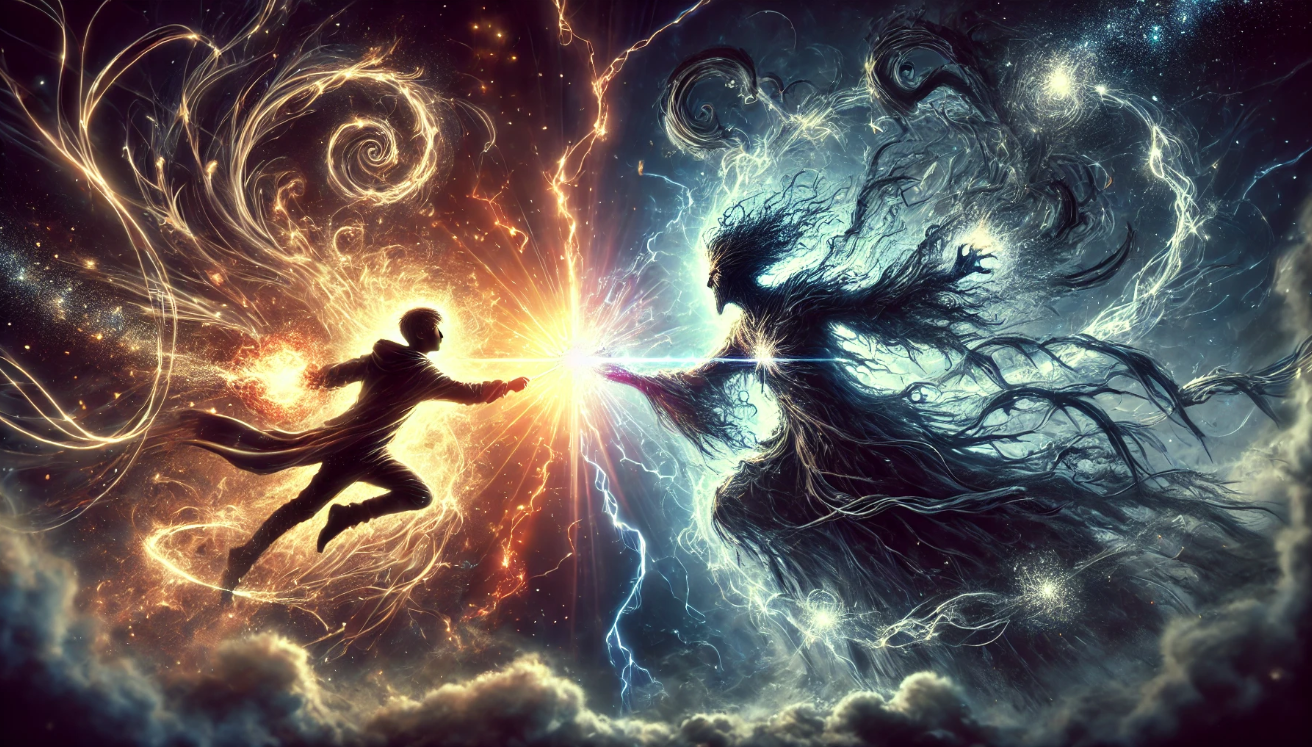 Voldemort’s connection with Harry is the most significant in the series. From the moment Harry was born, Voldemort saw him as a threat to his power. Their rivalry is defined by a deep, almost fated connection. Voldemort’s obsession with Harry led to several attempts on his life, yet Harry’s survival marked the beginning of Voldemort’s downfall. The constant clash between these two characters represents the battle between good and evil, as well as the power of love versus fear.
Voldemort’s connection with Harry is the most significant in the series. From the moment Harry was born, Voldemort saw him as a threat to his power. Their rivalry is defined by a deep, almost fated connection. Voldemort’s obsession with Harry led to several attempts on his life, yet Harry’s survival marked the beginning of Voldemort’s downfall. The constant clash between these two characters represents the battle between good and evil, as well as the power of love versus fear.
Actionable Insight: Voldemort’s relationship with Harry shows how obsession with a single goal can blind one to other possibilities. For readers, it’s a reminder that focusing on competition or rivalry can prevent growth and innovation. Embrace challenges, but avoid being consumed by them.
2. Voldemort and Severus Snape: Loyalty and Deception 
Severus Snape’s loyalty to Voldemort was deep, yet complex. On the surface, Snape was one of Voldemort’s most trusted followers, but his true allegiance was to Dumbledore. Snape’s ability to manipulate Voldemort without him realizing the deception showcases the danger of underestimating others and the intricate relationships of loyalty in times of war. Their relationship ultimately revealed the theme of redemption, as Snape’s true actions were only understood after his death.
Actionable Insight: Snape’s relationship with Voldemort teaches that appearances can be deceiving. It’s important to question motivations and not always take things at face value. Trust, when built on integrity, can lead to greater outcomes than blind allegiance.
3. Voldemort and Bellatrix Lestrange: Blind Devotion 
Bellatrix Lestrange’s adoration for Voldemort was absolute. She was one of his most loyal followers, even after his fall. Her blind devotion to him, despite his cruel treatment of her family, highlights how powerful Voldemort’s influence was over his followers. Bellatrix’s obsessive loyalty often blinded her to the dangers around her, leading to her eventual demise.
Actionable Insight: Bellatrix’s relationship with Voldemort serves as a warning about the dangers of blind loyalty. It’s important to stay grounded and critical, especially when following a person or cause. Personal values should guide actions, not just the desire to please or gain approval.
4. Voldemort and Draco Malfoy: A Burden of Expectations 
Draco Malfoy was introduced to Voldemort’s world through his family, who were strong supporters of the Dark Lord. However, when Draco was tasked with assassinating Dumbledore, he found himself torn between his family’s expectations and his own moral compass. Voldemort’s pressure on Draco to prove his loyalty ultimately led Draco to a crisis of conscience. Unlike Bellatrix, Draco’s loyalty was more hesitant, showing the impact of peer pressure and family expectations on decision-making.
Actionable Insight: Draco’s relationship with Voldemort teaches us the weight of expectations from family, society, or authority. It’s essential to make decisions based on personal values and ethics, rather than simply following orders or adhering to expectations.
5. Voldemort and Peter Pettigrew: The Power of Fear 
Peter Pettigrew, also known as Wormtail, was one of Voldemort’s most loyal followers, but his loyalty was rooted in fear rather than respect or admiration. Voldemort saved Pettigrew’s life, and in return, Pettigrew served him faithfully, albeit with cowardice. Voldemort’s manipulation of Pettigrew highlights how fear can drive people to make choices they might not otherwise make, and how toxic relationships based on fear can lead to betrayal.
Actionable Insight: Pettigrew’s relationship with Voldemort serves as a reminder of how fear can control and manipulate people. In both personal and professional settings, it’s essential to build relationships based on mutual respect and trust, not fear or manipulation.
Voldemort’s Downfall: Lessons from His Defeat
 Voldemort’s defeat is a pivotal moment in the Harry Potter series, but his downfall is not just a plot point—it offers important life lessons about power, arrogance, and the consequences of ignoring key principles. By examining Voldemort’s mistakes, we can draw valuable insights that are applicable to both personal and professional growth.
Voldemort’s defeat is a pivotal moment in the Harry Potter series, but his downfall is not just a plot point—it offers important life lessons about power, arrogance, and the consequences of ignoring key principles. By examining Voldemort’s mistakes, we can draw valuable insights that are applicable to both personal and professional growth.
1. Arrogance Leads to Blind Spots 
Voldemort’s downfall was rooted in his overconfidence. He believed himself invincible, immune to defeat, and above the rules that govern others. This arrogance led him to underestimate his enemies, most notably Harry Potter, and to overlook the power of love and loyalty. Voldemort’s refusal to acknowledge his weaknesses blinded him to the very forces that could defeat him.
Actionable Insight: No matter how powerful or successful you become, arrogance can create blind spots. Recognize your weaknesses, value others’ strengths, and be open to learning. This mindset helps you avoid costly mistakes and grow in the face of challenges.
2. The Dangers of Isolation 
Voldemort distanced himself from others, relying solely on his followers and isolating himself from any emotional connections. His inability to form meaningful relationships left him vulnerable. He didn’t understand the value of alliances or genuine loyalty, and in the end, this isolation contributed to his fall.
Actionable Insight: Isolation can hinder progress and success. Building strong, supportive relationships and working with others can provide valuable perspectives and strength in difficult times. Collaboration fosters resilience and growth.
3. Disregarding the Power of Love 
One of Voldemort’s greatest failures was his inability to understand love’s power. He thought love made people weak and dismissed it as a tool of the “lesser” witches and wizards. However, love was the very force that protected Harry, and it played a key role in Voldemort’s defeat. His inability to understand this was his critical mistake.
Actionable Insight: Love and empathy are not weaknesses; they are powerful forces that can build lasting connections and drive success. In both personal and professional life, relationships built on mutual respect and care can offer incredible strength, resilience, and support during tough times.
4. Failure to Adapt 
Throughout the series, Voldemort fails to adapt his strategies. When faced with new challenges, he continues to rely on old tactics, whether it’s fear or control, without recognizing the changing dynamics of the situation. His inability to evolve contributed to his eventual defeat, as Harry and his allies adapted, growing stronger and more capable.
Actionable Insight: Stagnation is the enemy of progress. Embrace change, be willing to adapt, and continually seek new solutions. Whether you’re facing challenges in business, personal growth, or relationships, flexibility and adaptability are key to long-term success.
5. The Importance of Humility 
Voldemort’s refusal to acknowledge his own mortality or that of his followers made him overlook simple truths. In his attempt to make himself immortal, he created Horcruxes, which ultimately weakened him. His failure to recognize the importance of humility and acceptance of his own limitations led to his downfall.
Actionable Insight: Humility is a strength, not a weakness. Accepting that you are not invincible or all-knowing allows you to grow, learn from others, and avoid the traps of overreach. Recognizing your limitations opens doors to new opportunities and growth.
Understanding Voldemort’s Legacy
Voldemort’s journey from a troubled orphan to the most feared Dark Lord in the wizarding world is a fascinating, yet cautionary tale. His motivations, traits, and relationships offer valuable insights into the dangers of unchecked ambition, the consequences of isolating oneself from others, and the profound impact that fear and power can have on a society.
While Voldemort’s reign was filled with cruelty and manipulation, his downfall provides essential lessons for all of us. It teaches us about the importance of humility, the power of love, and the necessity of adaptation. By reflecting on Voldemort’s rise and fall, we can better understand the complexities of human behavior and the importance of choosing our values wisely.
Whether in leadership, personal growth, or relationships, the lessons from Voldemort’s character can help guide us toward making better choices and avoiding the traps of pride and fear. In the end, Voldemort’s story reminds us that true power comes not from domination and fear, but from understanding, connection, and respect.
By understanding the Dark Lord’s motivations, we’re better equipped to navigate the challenges we face in our own lives. After all, it’s the choices we make—just as much as our power—that define us.
Frequently Asked Questions (FAQs)
Who is Voldemort in the Harry Potter series?
Voldemort, born Tom Riddle, is the main antagonist in the Harry Potter series. He is a dark wizard who seeks to dominate the wizarding world and rid it of Muggle-borns (wizards born to non-magical parents). He is feared for his power, obsession with immortality, and complete disregard for human life.
What motivates Voldemort to seek power?
Voldemort’s primary motivation is to gain absolute power and immortality. His fear of death, stemming from his childhood experiences and the loss of his parents, drives him to seek control over the wizarding world and eliminate any threat to his rule, including Harry Potter
What are Voldemort's key personality traits?
Voldemort is manipulative, cunning, ruthless, and power-hungry. He is devoid of empathy, sees others as tools for his gain, and shows no compassion for life or the consequences of his actions. His arrogance and belief in his superiority make him a dangerous and unpredictable villain.
Why does Voldemort fear death?
Voldemort’s fear of death stems from his childhood experiences, including the abandonment by his parents. Having no real love or attachment in his life, he fears the unknown and is obsessed with immortality as a way to control his fate and avoid the vulnerability that comes with mortality.
What is Voldemort's impact on the wizarding world?
Voldemort’s rise to power causes widespread fear and division in the wizarding world. His reign of terror leads to the deaths of many, including key figures like Harry’s parents, and he plunges the magical society into chaos. His efforts to divide the wizarding community based on blood status leave a lasting impact on future generations.
How does Voldemort’s relationship with Harry Potter shape the story?
The relationship between Voldemort and Harry Potter is central to the series. Voldemort sees Harry as a threat due to the prophecy that suggests one must defeat the other. This conflict drives much of the action in the story and ultimately leads to Voldemort’s downfall.
Why does Voldemort create Horcruxes?
Voldemort creates Horcruxes to split his soul and achieve immortality. By hiding parts of his soul in objects, he makes himself effectively unkillable as long as the Horcruxes remain intact. This dark magic is one of his most sinister acts in his pursuit of power and eternal life.
What lessons can be learned from Voldemort’s character?
Voldemort’s character serves as a warning about the dangers of unchecked ambition, fear of death, and the rejection of love. His story teaches the importance of empathy, the consequences of isolation, and the ultimate futility of seeking power at the expense of humanity.








